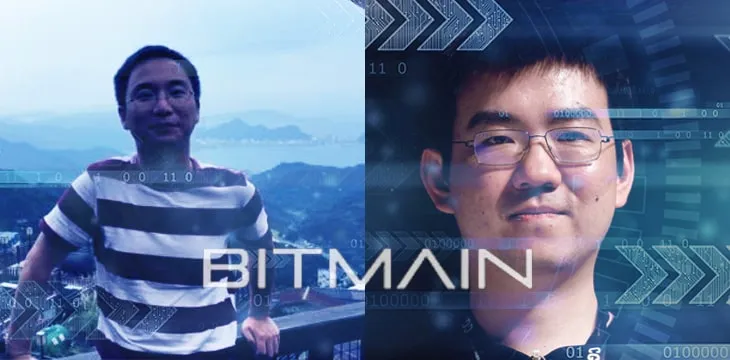|
Getting your Trinity Audio player ready...
|
Bitmain’s unique brand of terrible corporate governance was on full display in a recent letter reportedly sent by CEO Jihan Wu to colleagues addressing the continuing infighting raging on between the firm’s two founders. It reveals an avalanche of poor decision making and neglect by Wu himself as he attempts to cast blame at his co-founder and chief technical visionary, Micree Zhan.
The internal power struggle between founders Jihan Wu and Micree Zhan has been ongoing for several years, often playing out in the public square of Chinese social media and a judicial courtroom. This situation has gotten remarkably worse over the past several months, marked by accusations of physical intimidation, theft, and corporate misconduct.
In a July 17th letter, Wu sought to explain his side of the conflict that is negatively affecting both employees and customers of Bitmain.
In the letter, Wu paints Zhan as a power-mad, greedy, and duplicitous former partner responsible for employee attrition and many of Bitmain’s poor strategic decisions, which almost lead to its financial ruin. He warns employees that if allowed to return to power, Zhan’s abusive personality will drive more employees away from the company. Zhan’s renewed leadership will ultimately lead to Bitmain’s eventual downfall.
What’s alarming is not the assertions on the future if Zhan returns, but the litany of transgressions Wu accuses Zhan of committing during the final three years inside Bitmain and the subsequent period of turmoil happening right now.
Wu acknowledges that Zhan was the driving force behind the company’s technological interests, which rose to prominence by manufacturing ASIC hardware equipment. This role earned Zhan a larger ownership share of the organization. During what period their relationship soured is unknown. The rumor is the co-founder disagreed over Wu’s desire to back the fork away from Bitcoin to the inferior ABC protocol.
This decision had disastrous consequences for the industry powerhouse, forcing them into a costly hash war that contributed to the drain on their cash reserves. This decision reverberates to this day as Bitmain remains anchored to the poorly performing BCH blockchain.
This disastrous choice alone dwarfs any strategic misstep Zhan might have made in light of the rapidly flourishing ecosystem on Bitcoin SV. Its by-product could have caused much of the market volatility witnessed at the time by Bitmain liquidating tokens in their treasury into an illiquid market to fight on the losing end of the hash war.
If Wu is to be believed, Zhan is responsible for Bitmain almost falling into bankruptcy, knowingly releasing defective products into the market, reneging on commitments to employees leading some to depart, and found Bitmain’s chief rival MicroBT. Wu also accuses Zhan of squandering hundreds of millions of Bitmain operating capital, culminating with an eventual coup attempt to remove Wu himself as CEO before he ousted Zhan.
During this entire time, Bitmain was the media darling of the crypto startup community, reaching a staggering $14.5 billion valuation with Wu setting its sights on an IPO knowing the company was deteriorating within its top ranks. Capital market investors dodged a bullet when Bitmain’s IPO dreams crashed down. The allure of investing in the market-leading ASIC hardware manufacturer would have enticed many to throw money behind this train wreck of an executive team.
In a story writing twist befitting of a TV melodrama, the craziness from that time somehow got worse this year. The letter continues, unintentionally highlighting that there are outwardly now two Bitmain. Vital operations, such as the bitcoin mining pool, are at risk.
Zhan and Wu are now operating competing supply chain companies, as both still battle for the Antiminer trademark and Bitmain employees and branding. The struggle includes control over corporate bank accounts and communication channels. Both sides allege criminal activity, and wrongful conduct is being committed by the other.
The drama has left Bitmain’s clients confused about which group they should deal with and wire payment to, causing delays in the delivery of hardware. It has left suppliers and service providers wondering which group they should work with and who will pay them. Competitors are probably snickering as they onboard new clients formerly with Bitmain.
The letter also shows Wu’s failure to mitigate this potential risk early on by removing Zhan as a director from Bitmain’s subsidiaries. In his attempts to paint Zhan as the villain, Wu showcases his inept leadership. Zhan’s tactics to regain control of Bitmain are possible because Wu again failed to foresee and mitigate these areas of risk to himself and Bitmain.
As Wu portrays himself as the dutiful savior of Bitmain throughout the years, he ignores the role he played as the enabler of Zhan’s dangerous actions. Neither co-founder should have the confidence of shareholders or be in charge of running the multibillion-dollar organizations.
Wu is right at the end that the power struggle has done severe reputational damage to Century Yunxin and Bitmain Group. For outsiders, the power struggle has had the same effect as a whistleblower uncovering the poor business practices inside the company. Bitmain is in serious trouble and has been for quite some time.
Both sides are to blame, and no amount of philosophizing or obfuscation will change that. Either through awful decisions or negligence, Wu is primarily culpable for the putting Bitmain on the path to ruin after Zhan put in place the technical foundation that enabled Bitmain to flourish.

 06-30-2025
06-30-2025 





